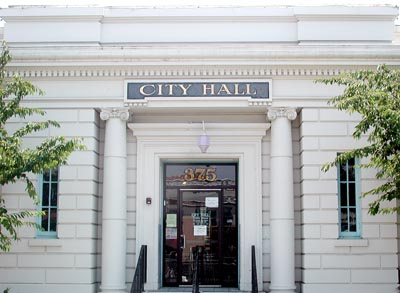HOLLISTER
While many California communities are gearing up for likely cuts to start the new year due to the lagging economy, Hollister officials are honing in on sales tax figures as they decide what adjustments might be necessary in the coming months to balance the budget.
Local municipal leaders statewide expect significant declines in revenue compared with summertime budget projections because they expect both sales and property tax projections have taken a relative nose dive these past few months. Hollister City Manager Clint Quilter told the Free Lance that council members plan to hold a mid-year budget review during the first or second meeting in January.
Quilter also said Hollister officials are most conscious of sales tax revenue, particularly during the Christmas shopping season, because only a small portion of the city budget – $800,000 to $900,000 toward $13 million in total general fund expenses – is funded through property tax revenue.
With the 1 percent sales-tax increase approved by voters in late 2007, city officials had projected about $2.8 million in added revenue annually at the time and have budgeted for that amount through June 2009. The number already had dropped from an initial estimate of $4 million in added revenue from the voter-approved measure.
Although the economy has slumped further since late last year, Quilter said the $2.8 million figure had been a “pretty conservative” estimate.
“That’s one of the numbers we’re looking closely at soon,” Quilter said of sales tax revenue.
He said the city’s financial standing for the fiscal year’s final six months will be unclear until after New Year’s.
“Things aren’t looking real rosy,” he said. “It’s hard to tell anything until after the Christmas season.”
A League of California Cities spokeswoman, meanwhile, told the Free Lance that communities throughout the state already have started talks about potential cuts. Megan Taylor with the league noted how some cities are considering such cost-cutting measures as implementing a hiring freeze, having employees work four-day weeks or delaying contract negotiations.
“What we’re learning is most cities are gearing up for what could be some pretty significant budget cuts,” Taylor said. “They operate in the same economic environment that we’re all in, that the state is in.”
Taylor also criticized a proposal floated in Sacramento – to close an $11 billion deficit – to have cities and counties throughout California lend money to the state during this rough stretch.
“That’s the wild card that could just be really devastating for a community,” she said. “The message from the cities to the state is, ‘You have to solve your own budget problem.'”










